Why your data might already be on a Europol list
Police forces around Europe seem hooked on the habit of collecting information on a massive scale and forwarding it to the EU's police agency, Europol. This undermines privacy, fair trial rights and the presumption of innocence.
Filter resources
-

Why your data might already be on a Europol list
Police forces around Europe seem hooked on the habit of collecting information on a massive scale and forwarding it to the EU's police agency, Europol. This undermines privacy, fair trial rights and the presumption of innocence.
Read more
-

Meta plans paid subscription for users who don’t want to be tracked
In a move to circumvent EU privacy law, Platform giant Meta reportedly plans to ask users to pay up to €228 a year to preserve their fundamental right to privacy on its platforms.
Read more
-

Activists come to Brussels to tell MEPs to ensure everyone’s digital security amid mass surveillance measures in CSA Regulation
Between 9 and 11 October, 23 Stop Scanning Me activists from 13 European countries travelled to Brussels. They were students, parents, lawyers, young activists, human rights defenders and technologists. They came on behalf of the 200,000 people who signed the movement petition to tell their EU representatives in the European Parliament that the CSA Regulation proposal must be rejected to prevent mass surveillance.
Read more
-
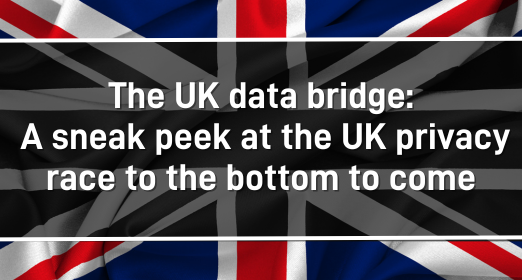
The UK data bridge: a sneak peek at the UK privacy race to the bottom to come
The UK extension to the EU – US Transatlantic Data Privacy Framework will come into force on 12 October. Its adoption provides a sneak peek at the future of UK international data transfers, and the erosion of essential guarantees against surveillance measures that the UK data protection reform would bring.
Read more
-
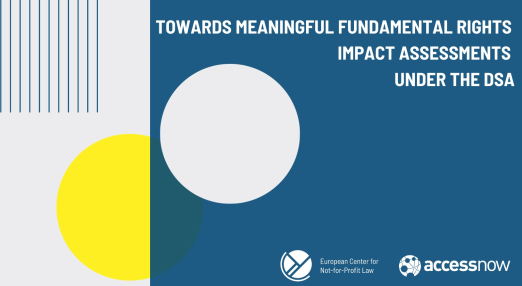
How tech corporations like Google, Meta and Amazon should assess impacts on our rights
A new policy paper by EDRi members ECNL and Access Now outlines key recommendations on how to make fundamental rights impact assessments meaningful under the European Union's Digital Services Act (DSA).
Read more
-
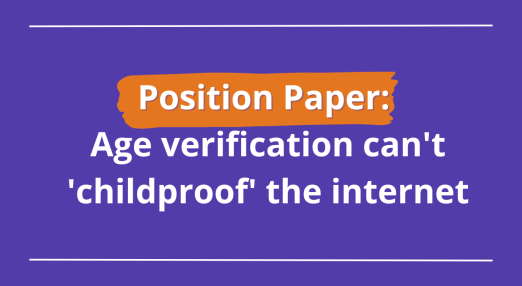
Position Paper: Age verification can’t ‘childproof’ the internet
EDRi has published its policy paper on age verification to shed light on the risks of the widespread use of age verification and to chart out possible alternative solutions.
Read more
-
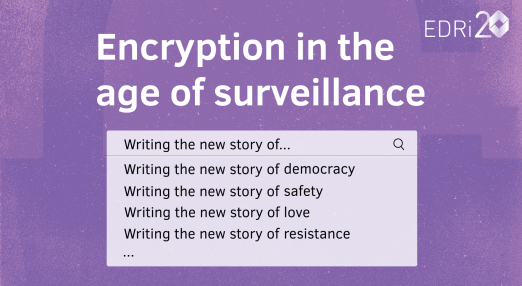
Event summary: Encryption in the age of surveillance
The EDRi-organised event on encryption, surveillance, and privacy brought together key policymakers, academics, activists and members of the press to build a better understanding of why encryption is important for people and democracy.
Read more
-

Polish Senate calls Pegasus illegal and demands scrutiny over secret services
The Senate of Poland concluded its investigation on the use of Pegasus by Polish secret services to spy on ia. opposition politicians and unapologetic public persons. They declared that Pegasus should be considered illegal in Poland and the secret services should be put under strict and independent scrutiny. Doubts also arose around the fairness of Poland’s 2019 elections.
Read more
-

Czech police use facial recognition system, IuRe finds out details
EDRi member Iuridicum Remedium have details on the Czech police’s illegal use of a facial recognition system. The country’s data protection authorities were not consulted in advance on the system, which is being used for biometric identification
Read more
-
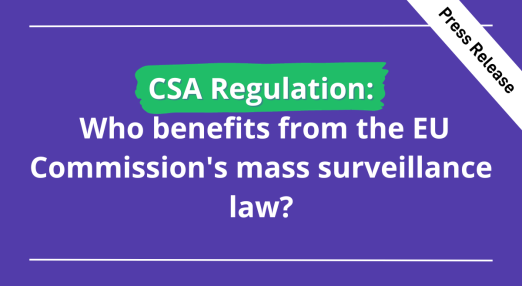
Press Release (CSA Regulation): Who benefits from the EU Commission’s mass surveillance law?
A newly-published independent investigation uncovered that the European Commission has been promoting industry interests in its proposed law to regulate the spread of child sexual abuse material online.
Read more
-
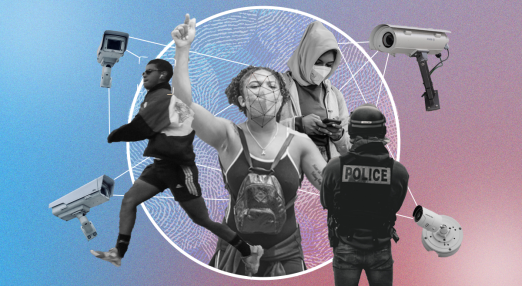
How to request access to your personal data stored by Europol: a guide
This guide is for everyone who wishes to access personal data on them that is processed, or has been processed, by Europol. Access requests help us to understand the extent of the agency's data collection and processing activities, and increase scrutiny.
Read more
-

The Stop Scanning Me movement organised a mass protest in Berlin against dangerous surveillance law
The German alliance against chat control "ChatkontrolleSTOPPEN!" mobilised people in a protest against the European Commission's mass surveillance plans under the Child Sexual Abuse Regulation (CSAR). The action took place during the visit of the European Union Interior Commissioner to the conference of the German Interior ministers in Berlin.
Read more
